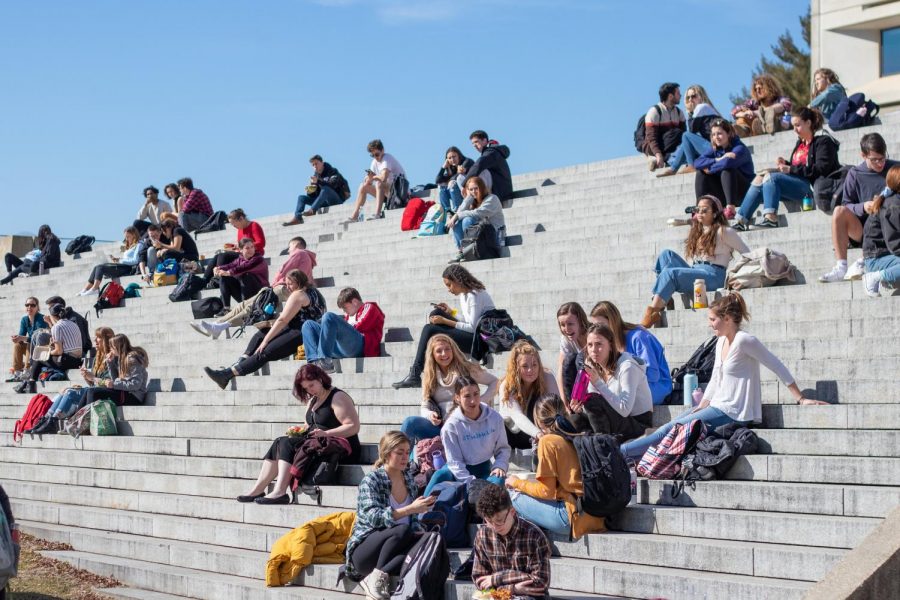As the fall semester begins at the University of Massachusetts, many students are wondering how the second attempt at virtual learning will go.
Last spring, the University abruptly transitioned into remote learning after the COVID-19 pandemic forced stay-at-home orders. Professors, some with no previous experience with online courses, had to navigate new learning tools and methods of teaching.
“Last year the transition happened so quickly, I think the biggest challenge was helping students overcome the shock. But at least they already knew me and knew each other,” said Laurie Salame, an Isenberg School of Business senior lecturer. “This semester, I’ve had to think about what a fully remote learning environment could look like and make adjustments.”
Under the Fall 2020 Reopening Plan, UMass announced that most courses would be taught remotely. Students have felt the loss of a semester on campus, while professors have had to make adjustments to provide an education in the new normal.
For Ludmila Krasin, senior lecturer in piano in the department of music and dance, problems with connecting to Wi-Fi has led to teaching a piano class from her kitchen without access to the actual instrument.
Professors have run into a host of other issues as well, including budgetary concerns and students who live in different time zones. Gail Cruise, an Isenberg senior lecturer, said her students live in countries as far as China, Brazil, Korea and Pakistan and have been unable to join synchronous lessons.
“Budgetary conditions are fluid. This causes me concern for the type of special education program that we are proposing at the College of Education,” said Tammie Samuels, a lecturer in the College of Education. “It may sound cliché, but it really does take a substantial amount of funds to prepare and maintain a quality program at our flagship.”
These challenges mean adjusting expectations for students and for the outcomes of this semester.
“While I do not expect any less of my students, I am trying to adjust the ways in which I deliver the course content and assess them so as to not make it harder on anyone to succeed,” said Shubha Tewari, a senior lecturer in the Department of Physics. “This involves flexible deadlines, choices in how to complete certain work, changed final assessment in one course from an exam to a paper and so on.”
Others have had to adjust to not having campus resources. Karen Giuliano, an associate professor in the College of Nursing, used to hold class in the stage of the Performing Arts Center, the University Museum of Contemporary Art and the Bowker Auditorium. She is now planning to use exhibits to connect students with the lived experiences of qualitative research.
For some professors, this situation is bringing a whole new approach to their courses and shedding light on the real-world value of what they teach.
“It would be hard to teach in the field of hospitality and tourism without acknowledging the impact that COVID-19 has had on our industry,” Salame said. In her syllabus, she included the message: “Our industry is strong and resilient. It may be a while before we return to big group settings and business as usual, but we WILL get there, and when we do, I know that you and your fellow HTM students and alumni will be ready to take the lead.”
Despite the hurdles, most professors remain optimistic. Some plan to use the tools they’ve learned this semester for future courses while others are just trying to remain flexible with the unexpected situation.
“My desire to give my students a sense of normalcy during this time,” said Jenny Adams, an associate professor in the Department of English. “Yes, we’re Zooming from home, or a dorm room, or a car trying to grab wireless from Cracker Barrel. But we can still read texts and wrestle with big ideas together. That hasn’t changed, right?”
Kelly Palacios can be reached at [email protected]. Follow her on Twitter @kellydpalacios.



















